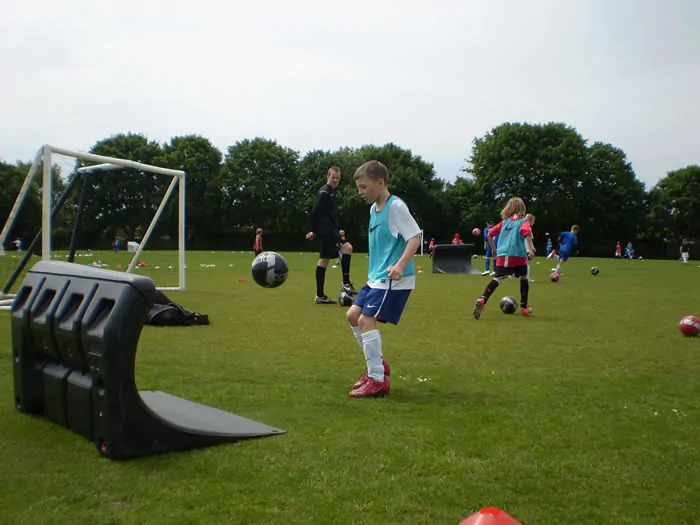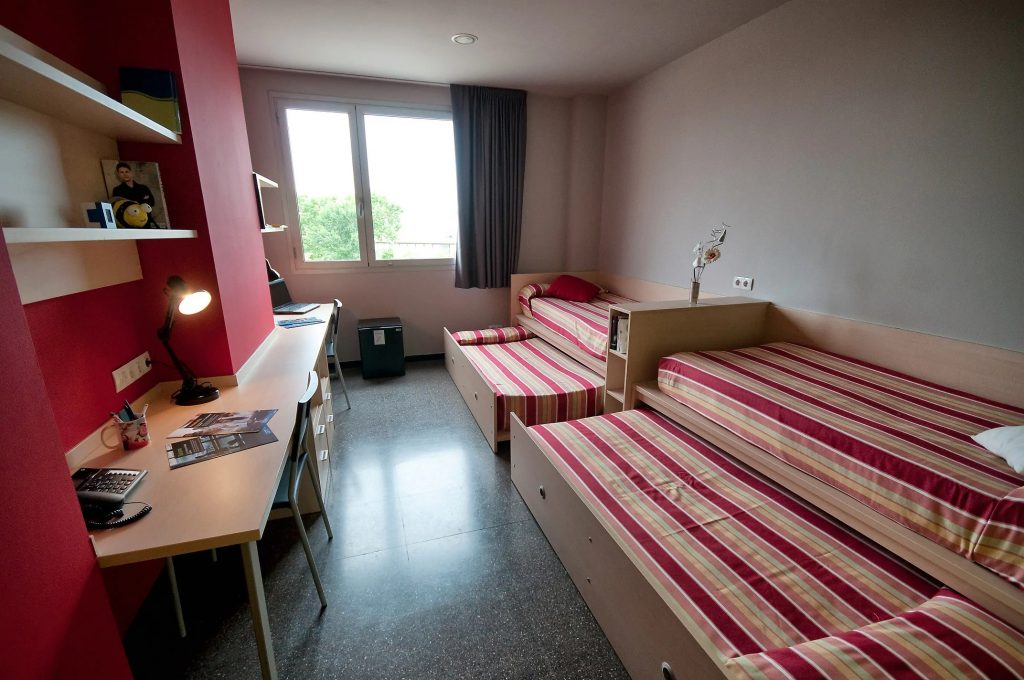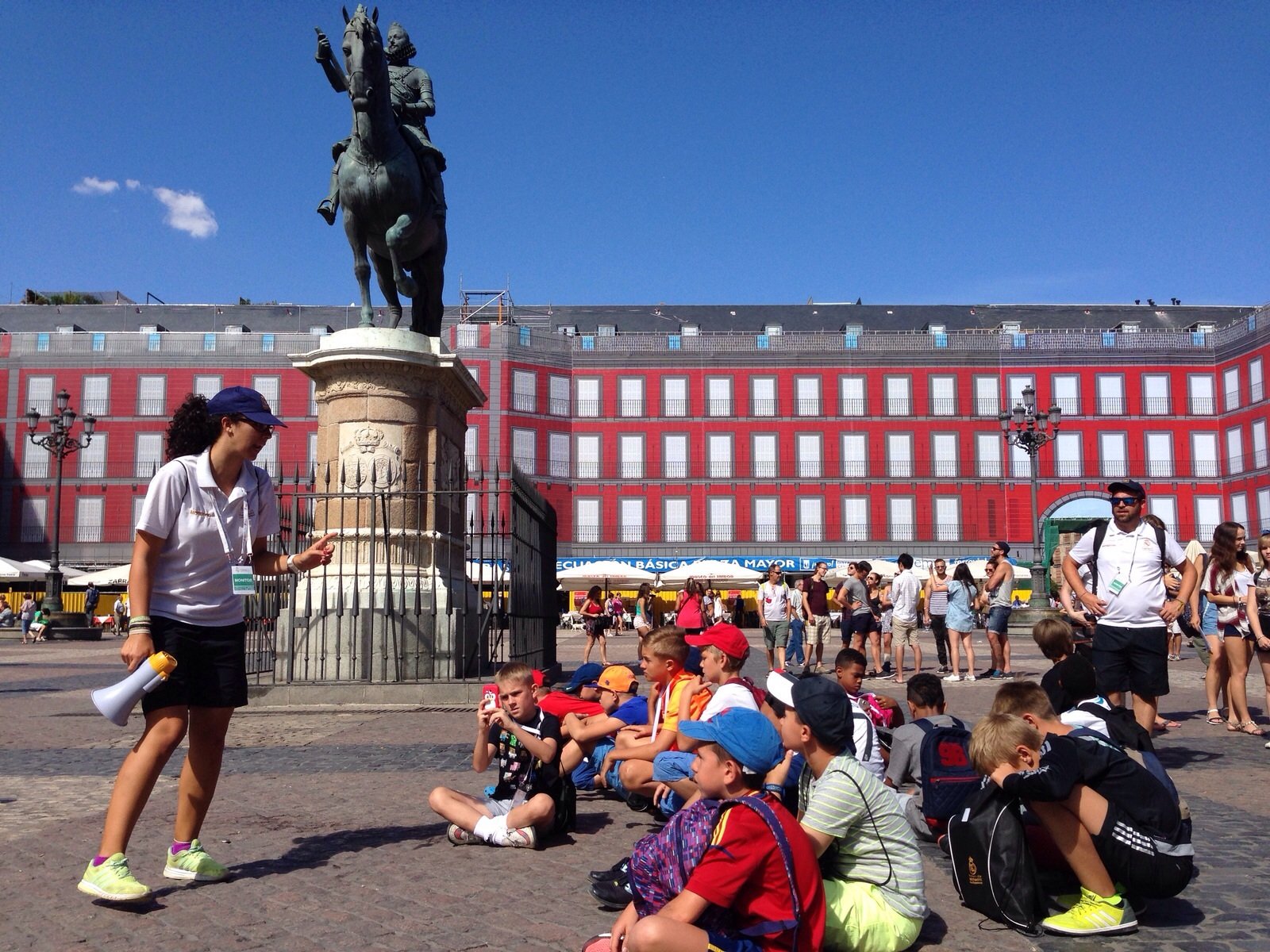More and more parents are looking into the possibility of signing their children up for a football camp to give them an unforgettable experience in the summer holidays. However, the hard part is trying to decide exactly which camp is best suited to your child.
The range of summer camps specializing in soccer is certainly very varied at the moment. Among them, we find camps for all ages, both national and international. Some include language learning, and others are organized by world-class teams, with a very high level of training sessions.
Here at Ertheo, we are totally aware of the difficulties many parents have in trying to choose between different types of football camps. With that in mind, we want to highlight five important guidelines that should help you choose the camp that best fits your child’s needs and expectations.
1. Talk to your child
The first step is to talk to your child to find out what they really think about it. We should never force our children to accept our opinions on the matter, and it’s absolutely vital that they attend the camp voluntarily. The most important thing is for your child to feel totally at ease at the camp and to fully enjoy their time there. We need to put their needs and expectations before our own and mutually decide the most suitable camp, taking into account both points of view.
If you would like more information about how a summer camp could really benefit your child, please take a look at this very helpful article.
2. The level of play and the intensity of the training

Another key element is to determine your child’s overall level. By taking into account their skills and abilities when playing soccer, you can either opt for a camp specifically designed for the most gifted youngsters, or camps that offer a training program that’s adapted to each level (beginner, intermediate, and advanced).
As a general rule, most soccer camps are open to young people of all levels and abilities. However, for children who are looking for intensive, competitive training, a high-performance soccer camp is the best option.
The level of play is very closely linked to the intensity of the training sessions offered at each camp. Naturally, standard camps and high-performance camps differ considerably as to the number of hours that the children train. If you mistakenly sign your child up for a camp aimed at advanced players and they can’t handle the intensity of the sessions, then they’re likely to easily get tired, bored, lose motivation, and become disenchanted with the whole experience.
3. English classes
When it comes to choosing a soccer camp, language classes (usually in English) are often one of the most sought-after options for parents. However, it’s important to take into account the number of hours of classes that the camp offers per week, as well as the academies responsible for providing the classes, and the teaching methods they use.
In summer soccer camps, students will improve their overall level in a second language by attending classes and practicing daily with students from other countries.
Nowadays, practically all summer camps offer sports plus languages. We should highlight the increasing popularity of football camps abroad where the student is completely immersed in the English language.
4. Quality and location of the facilities

The quality and location of the facilities should always be taken into account when comparing different soccer camps.
Most camps are residential and have arrangements with fully-equipped, modern living quarters that vary in different aspects, one of them being the number of students per room. Some camps provide single rooms, but the general trend is for the kids and young people to share rooms to help them interact and socialize together.
Likewise, the location of the training area, English classes, and accommodation is especially relevant. Some camps have all their activities in the same place, while others may require the child to travel to and from the camp on a daily basis.
5. Additional camp activities
Summer football camps aren’t just about training and language classes. They also offer a wide range of entertainment activities as well as all sorts of weekend trips to ensure that all their students have a fabulous time.
Some camps have some added extras, such as free sports items for the students, certificates of attendance (training and language classes), a laundry service, a free internet connection, and even physiotherapy sessions included in the price.
So, you now have plenty of guidelines to help you choose the most suitable camp for your child. Watch the video below that describes the most important aspects to look for in a soccer camp, as explained by our director, Christian Samuelsson. However, if you still have any questions, then don’t hesitate to get in touch with us.

